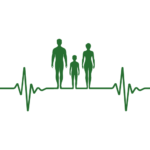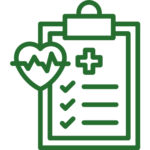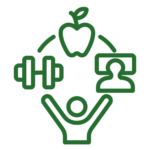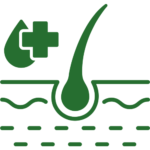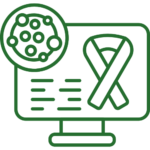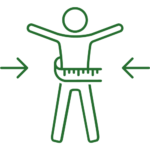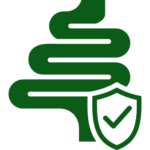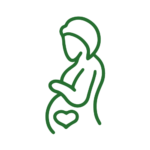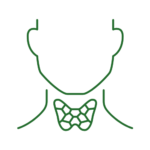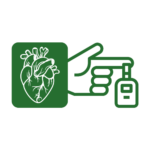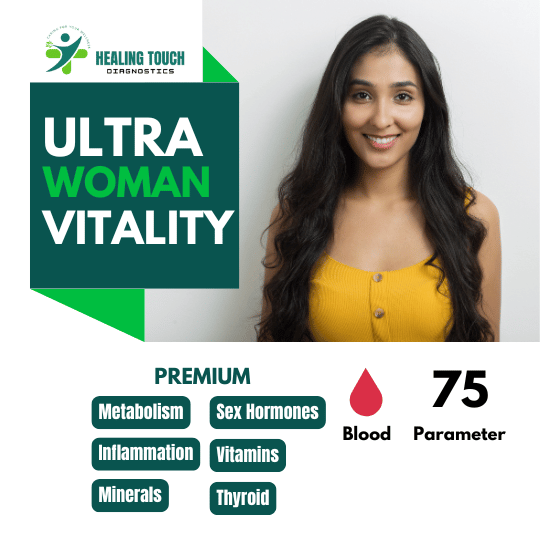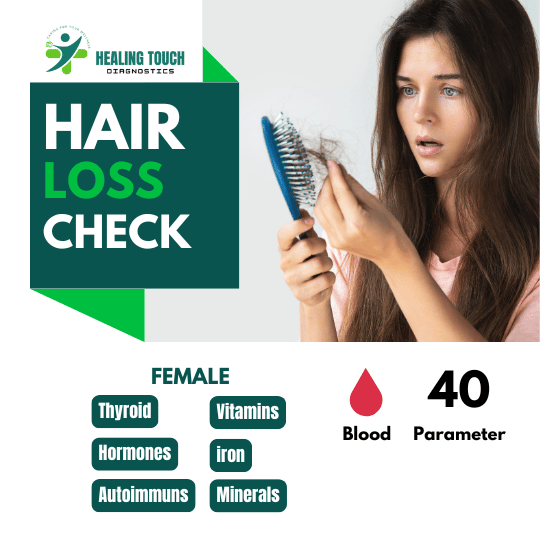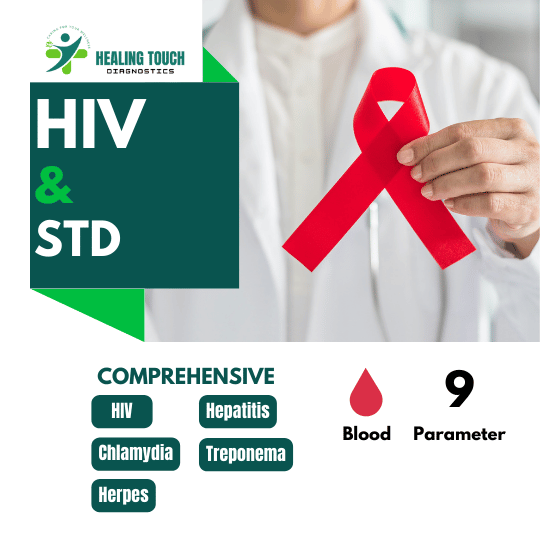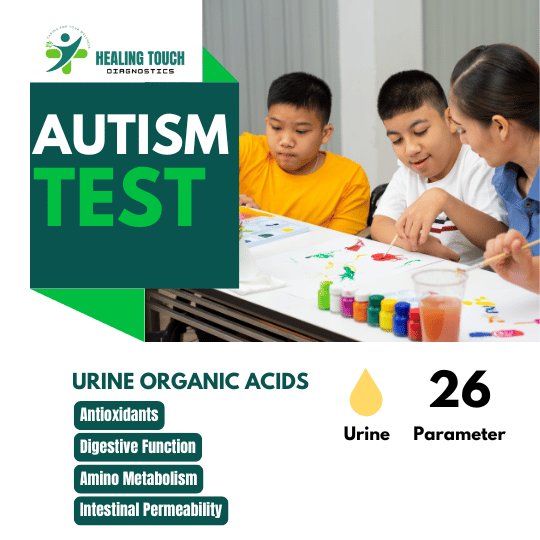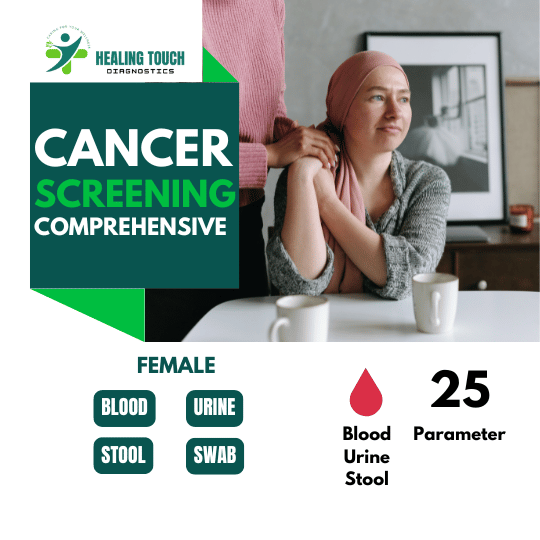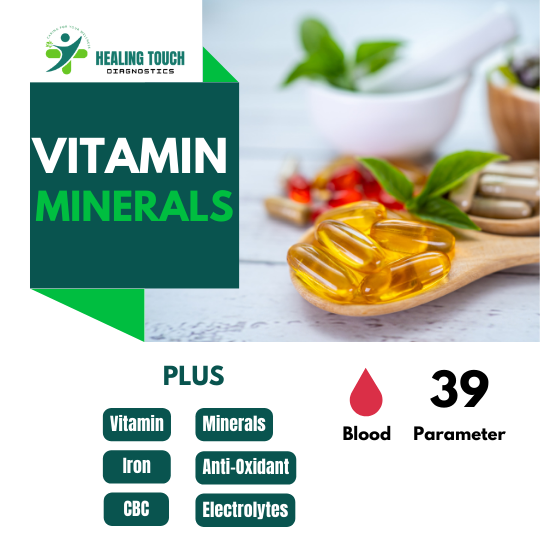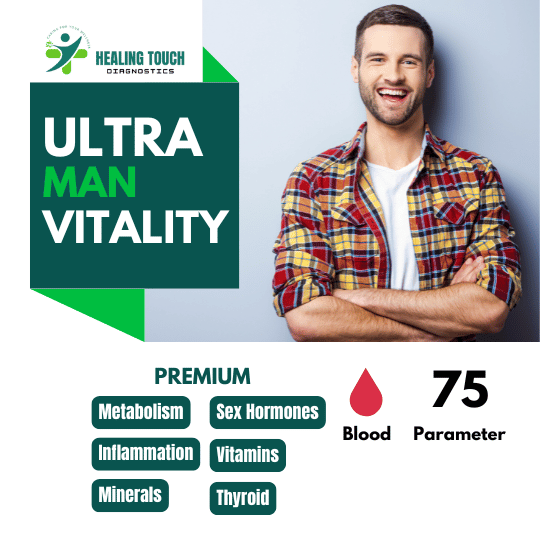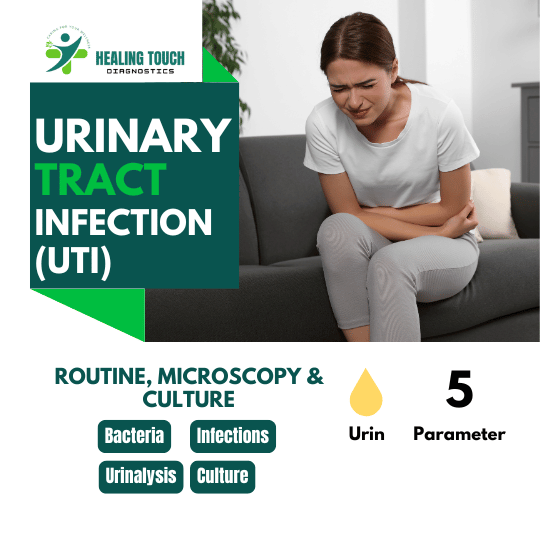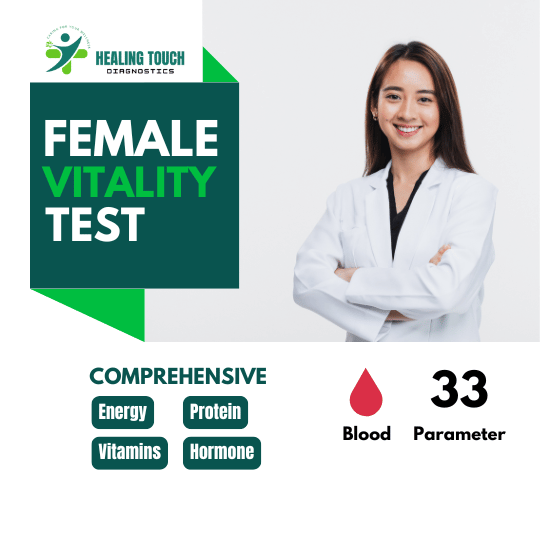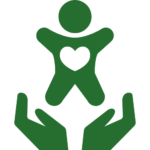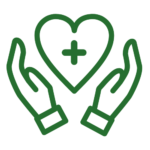
About the Complete HIV & STD Test
The comprehensive HIV & STD panel tests for the presence of sexually transmitted diseases in the body. The STD & HIV test checks for HIV – I & II through ELISA testing, and 9 STD types for a comprehensive analysis on the risk factor for these sexually transmitted diseases. HIV testing can be done through the test, giving you a complete report of the presence of the disease and your risk factors.
You can get an HIV test at-home through the HIV & STD panel in India, with a partial report generated quickly within 24-48 hours. This gives you a faster assessment of the presence of the disease so that you can initiate treatment. A complete report is generated within 7 days, which will contain detailed information about the types of STDs you may have.
You can get our HIV tests across major cities in India. Our testing coverage includes Bangalore, Hyderabad, Chennai, Mumbai, Pune, Ahmedabad, Delhi, Gurgaon, Noida, Ghaziabad, Faridabad, Jaipur, Lucknow, Kolkata, and Chandigarh. You can easily order an at-home test in these cities and get your report delivered directly to your email address.
Tests included in the complete HIV & STD panel
The following tests are provided within the at-home HIV & STD test in India. You can place an order through our website and get access to convenience through at-home blood sample collection.
- HIV I & II – ELISA testing
- Anti Hepatitis C Virus (Anti HCV) – Total
- Hepatitis B Surface Antigen (HbSAg)
- Anti Chlamydia Antibody IgG
- Anti Chlamydia Antibody IgM
- Herpes Simplex Virus II (HSV) – IgG
- Herpes Simplex Virus II (HSV) – IgM
- Treponema Pallidium Antibody (TPAB)
- Treponema Pallidium Haemagglutination (TP
- VDRL (screening for Syphillis)
Knowing more about HIV (Human Immunodeficiency Virus)
HIV is a virus that breaks down immune cells in the body, thereby weakening it significantly. An individual with HIV is then susceptible to a range of infections and diseases, which can further impact their immune system. The best approach is to get tested immediately and start with medication right away.
In the later stages of HIV, the person may develop AIDS which is acquired immune deficiency syndrome. In this stage the person’s immune system is significantly compromised. While there is no known cure for AIDS, strict adherence to ARVs (antiretroviral regimens can dramatically slow the progression of the disease.
Common STI and STD other than HIV/AIDS
Some of the most common STDs and STIs are:
- Chlamydia
- Genital herpes
- Genital warts or human papillomavirus (HPV). Certain high-risk types of HPV can cause cervical cancer in women
- Gonorrhoea
- Hepatitis B
- Syphilis
- Trichomoniasis
What are the Main Causes of HIV
HIV infections are caused by the human immunodeficiency virus. You can get HIV from contact with infected blood, semen, or vaginal fluids.
- Most people get the virus by having unprotected sex with someone living with HIV.
- Another common way of getting it is by sharing drug needles with someone who is infected with HIV.
- The virus can also be passed from a mother to her baby during pregnancy, birth, or breastfeeding
HIV doesn’t survive well outside the body. So it can’t be spread by casual contact
like kissing or sharing drinking glasses with an infected person.

What are the symptoms of HIV
HIV may not cause symptoms early on. People who do have symptoms may mistake them for the flu Common early symptoms include:
- Fever
- Sore throat
- Headache
- Muscle aches and joint pain
- Swollen glands (swollen lymph nodes)
- Skin rash
The early symptoms usually go away within 2 to 3 weeks.
After the early symptoms go away, an infected person may not have symptoms again for many years. After a certain point, symptoms reappear and then remain. These symptoms usually include:
- Swollen lymph nodes
- Extreme tiredness
- Weight loss
- Fever
- Night sweats
 Comprehensive Test Range
Comprehensive Test Range
 State-of-the-Art Facilities
State-of-the-Art Facilities
 Easy Slot Booking
Easy Slot Booking
 Quick Results
Quick Results
